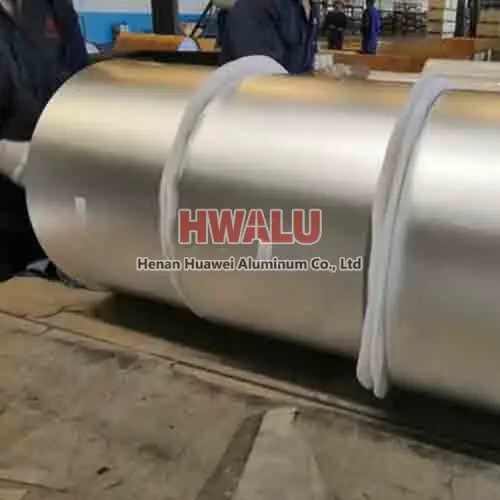Double zero aluminum foil refers to aluminum foil with a thickness between 0.001mm ( 1 micron ) and 0.01mm ( 10 micron ). Such as 0.001mm ( 1 micron ), 0.002mm ( 2 micron ), 0.003mm ( 3 micron ), 0.004mm ( 4 micron ), 0.005mm ( 5 micron ), 0.006mm ( 6 micron ), 0.007mm ( 7 micron ), 0.008mm ( 8 micron ), 0.009mm ( 9 micron ) 0.005 mic aluminium foil Advantages of 0.001-0.01 micron aluminum foil An ...
what is Cold forming alu alu foil? Cold forming blister foil can absolutely resist vapor, oxygen and UV rays with good performance of aroma barrier. Each blister is a single protection unit, no effect to barrier after opening first cavity. Cold forming foil is suitable to pack drugs that easy to be affected in wet regions and tropics. It can be shaped in various appearance by changing stamping mold. Simultane ...
Introduction: Welcome to Huawei Aluminum, your trusted source for high-quality Air-conditioner Aluminum Foil. This webpage will provide you with in-depth information about our aluminum foil products, including alloy models, specifications, and the reasons to choose Huawei Aluminum for your air-conditioning projects. What is Air-conditioner Aluminum Foil? Air-conditioner aluminum f ...
Aluminum foil for packaging bag introduction Aluminum foil bags are also called aluminum foil bags or aluminum foil packaging bags. Because aluminum foil has excellent barrier properties and protective capabilities, it is widely used to package a variety of products. These foil bags are commonly used to preserve the freshness, flavor and quality of food, pharmaceuticals, chemicals and other sensitive items. ...
Aluminum foil can be customized size Thickness: 0.006mm - 0.2mm Width: 200mm - 1300mm Length: 3 m - 300 m In addition, customers can also choose different shapes, colors, printing and packaging methods according to their needs. If you need custom aluminum foil, please contact us, we can provide you with options and customized services. Aluminum foil type According to the processin ...
For the capsule shell, because it is made of aluminum, aluminum is an infinitely recyclable material. Capsule coffee generally uses an aluminum casing. Aluminum is the most protective material at present. It can not only lock the aroma of coffee, but also is light in weight and high in strength. At the same time, aluminum protects the coffee from foreign substances such as oxygen, moisture and light. For cof ...
The thickness of aluminum foil for food packaging is generally between 0.015-0.03 mm. The exact thickness of aluminum foil you choose depends on the type of food being packaged and the desired shelf life. For food that needs to be stored for a long time, it is recommended to choose thicker aluminum foil, such as 0.02-0.03 mm, to provide better protection against oxygen, water, moisture and ultraviolet rays, th ...
Aluminum foil lunch box is a new type of non-toxic and environmentally friendly tableware. 1. The main ingredient in the aluminum foil lunch box is aluminum, so it will react with acid like aluminum cans, and the salt produced by aluminum and organic acids will react with gastric acid to produce aluminum chloride, so we need to use it. Note that, generally speaking, it is often used for steaming rice. There is ...
Have you ever eaten grilled fish or sixty-six, and you must have seen this tin foil, but have you seen this thing used in indoor spaces? That's right it's called decorative foil (decorative tin foil). Generally, it can be used on walls, top cabinets, or art installations. Aluminum foil (tinfoil paper) can be kneaded out of wrinkles, resulting in a very unique and abstract reflective texture, and the appeara ...
Battery Aluminum Foil VS Household Aluminum Foil Battery aluminum foil and household aluminum foil have similarities and differences in many aspects. Similarities between battery aluminum foil and household aluminum foil. Similarities Material basis: Both household foil and battery foil are made of high-purity aluminum materials. Aluminum foil has the basic properties of aluminum, such as light weight, good ...
Material selection: The material of aluminum foil should be high-purity aluminum without impurities. Choosing good quality materials can guarantee the quality and service life of aluminum foil. Parent roll surface treatment: In the early stage of aluminum foil production, the surface of the parent roll needs to be cleaned and decontaminated to ensure a smooth and flat surface and avoid oxide layers and ble ...








